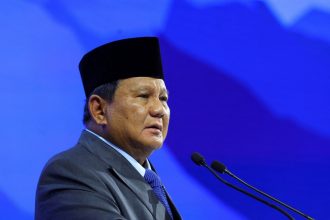DUBAI, 25 April — In a groundbreaking move, the United Arab Emirates has announced its plan to become the first country globally to systematically use artificial intelligence (AI) to draft and review laws. This visionary step is part of the country’s broader strategy to embrace digital transformation across all sectors, from legislation to public services, judicial rulings, and executive procedures.
As part of this ambitious initiative, the UAE government recently launched the Regulatory Intelligence Office, a cabinet-level body tasked with driving the digitalization of the legislative process. With this office in place, the UAE aims to revolutionize the way laws are created, making them faster, more precise, and in tune with the needs of modern society.
“This AI-driven legislative system will reshape the lawmaking process, making it more efficient and accurate,” said Sheikh Mohammed bin Rashid al-Maktoum, the UAE’s Vice-President and ruler of Dubai. His statement reflects the government’s unwavering commitment to embracing technology to enhance governance.
This bold move follows the UAE’s earlier steps to integrate AI into its infrastructure. In 2017, the country appointed Omar Sultan al-Olama as the world’s first AI minister and launched the UAE Strategy for Artificial Intelligence, setting the stage for the country to lead in AI innovation.
Political commentator Abdulkhaleq Abdulla explained, “The UAE is serious about AI. It wants to be a global leader in AI and the digital economy, just as it is already a leader in finance and logistics.” He emphasized that the country is heavily investing in digital infrastructure, aiming to stay ahead of the curve for the next 50 years, just as it did with its physical infrastructure in the past.
The economic potential is enormous. The UAE predicts that by 2030, AI will be worth US$15.7 trillion globally, potentially boosting the UAE’s GDP by 35% while slashing government costs by half.
Hesham Elrafei, a solicitor and law drafter in the UAE, shared his excitement about this transformation: “This isn’t just about using AI to write laws—it’s about rethinking how we make laws. Instead of getting bogged down in political wrangling, we can create laws that are clearer, faster, and designed to solve real-world problems.”
Elrafei explained that AI can analyze court judgments, identify legal gaps, and propose new laws to address these issues. It can also learn from successful legislation worldwide and help create more effective, contextually relevant laws for the UAE. This is especially crucial in a country with a diverse population, where legal clarity is essential for a community of about 200 nationalities, with only 10% of the population being local.
While Brazil has experimented with AI for drafting a single law, the UAE’s approach goes much further, creating a comprehensive transformation in how laws are created. Elrafei noted, “This move marks a shift from outdated systems rooted in political compromise to a model driven by technology and logic.”
Unlike many Western democracies, where lawmaking often depends on political negotiations, the UAE is pioneering a model based on data, logic, and tangible results.
However, not everyone is fully convinced by the reliance on AI. Some experts have raised concerns about the technology’s limitations. Vincent Straub, a researcher at Oxford University, warned, “AI systems still have reliability and robustness issues, and they can sometimes hallucinate or make errors that we can’t trust.”
Keegan McBride, a lecturer at the Oxford Internet Institute, pointed out that the UAE’s governance model allows for rapid experimentation, giving it a unique advantage over many democratic nations in implementing bold digital initiatives.
As the UAE continues to push the boundaries of what’s possible with AI, the world will be watching closely to see how this innovative approach to lawmaking unfolds and whether it can truly reshape governance for the better.








